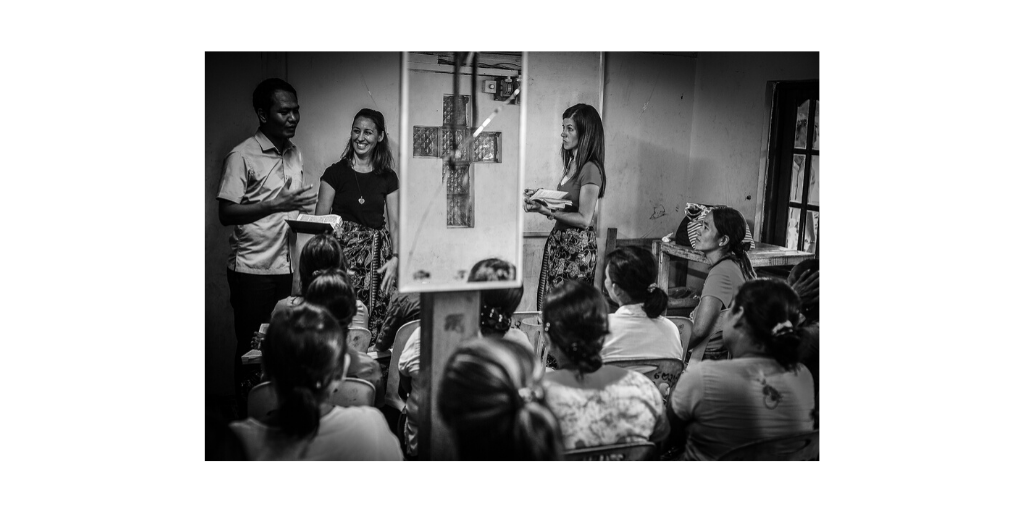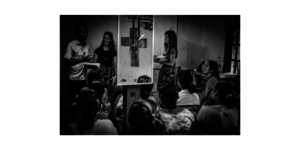
We just launched a Make Me an Instrument: A Guide to Civil Discourse For Individuals and For Groups. This free 5-week online curriculum was built in conjunction with The Episcopal Church’s Office of Government Relations and its Department of Faith Formation. The course is free to anyone who would like to take it.
Presiding Bishop Michael Curry has said: [L]ove the neighbor you like and love the neighbor you don’t like. Love the neighbor you agree with and the neighbor you don’t agree with. Love your Democrat neighbor, your Republican neighbor. Your black neighbor and your white neighbor, your Anglo neighbor, your Latino, your LGBTQ neighbor. Love your neighbor. That’s why we’re here.
In this curriculum, representatives and teachers from across the church teach civil discourse as a skill that we can develop and use to build healthier communities through building relationships across divisions within those communities.
The course instructors teach civil discourse as a specific style of conversation that requires particular skills and practices. Civil discourse is engagement in conversation intended to enhance understanding. Rabbi Steve Gutow, speaking at the Episcopal Church’s event Civil Discourse in America, remarked that “civility is simply demonstrating respect for the dignity of our fellow humans—even those humans with whom we have sharp disagreement. Civility is allowing others to speak, and having the humility to admit that we may have something to learn. Civility favors truth over cheap gain, and patience over knee-jerk judgment.”
The goal of these conversations is to be in deeper relationship and to more truly know each others’ dignity and worth. We strive for this deeper relationship so that when we go out to do our own advocacy, activism, and community engagement, we are better informed about who the “other” is without dehumanizing or demonizing them.
As well as explaining the practice of civil discourse, the reasons for using it, and its grounding in scripture and the sacraments, the instructors address challenges that can arise with the “listen and learn” approach they advocate. What if one group has been exploited by another? Is it unjust to expect the marginalized to listen to the privileged? What is the risk a conversation becomes mired in theory rather than allowing us to deepen our relationships with one another? And what if we all listen and value each other’s conversations and find that in the end, we simply do not share the same values? Or what if we do share values but are so hopelessly divided over how to achieve our goals that the values shared seem unimportant? What if the other conversational partner won’t abide by the “respectful listening” rules? All of these important questions, and many others, are covered in this curriculum.
This civil discourse curriculum offers hope that by using the tool of civil discourse, we can find new ways to love our neighbor. We look forward to exploring it with you.
For a preview of one of the courses, please click here.

